|
In just two months…
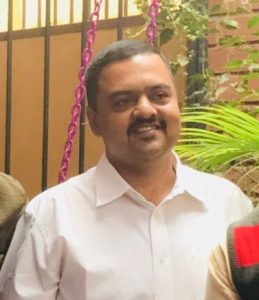
44 year old entrepreneur Manish Rao attended Dr Nandita Shah’s Reversing Diabetes Hypertension seminar in Bangalore in January this year. He believes it is one of the best thing that has happened to him…
“Hi friends, I wanted to share that becoming vegan and eating natural is one of my best journeys because I am getting both – active and better.
Over the last two months, I have lost 8 kilos plus become healthier, more energetic and have a warm feeling of well being. No colds or coughs anymore. I have eaten in abundance fruits, vegetables, sprouts and good foods. I also feel spiritually pure, my heart is lighter and food is a source of joy not guilt or denial as before. I’m working on getting more active in the kitchen and being aware of what goes into my system. I have been following posts of the WhatsApp group created for those who attended the seminar and they give me more and more drive.
I haven’t checked my blood pressure yet but with the amount of weight loss that I have experienced, I am sure that next week, when I go for my check up, the medicines are going to reduce. It’s been a massive breakthrough for me because since that one day with Dr Nandita, I haven’t touched any dairy or dairy products, sugar, white rice, raw, etc. Inspite of travelling at least once a week, I have been able to adapt to the diet very easily. There are abundant options available. Also changing my food patterns after 44 years, has given me so much confidence that I don’t perceive health as a threat anymore. I understand my health is in my hand.
I really appreaciate the conviction and support that SHARAN and Just Be provide in synchrony. Thank you one and all. Wishing every one a good journey.
|
|
Soy Yoghurt
Soy yoghurt is quite similar to dairy yoghurt. It’s fairly easy to make, looks white and full of compassion and health. You can make anything from this yoghurt to include butter-milk, raita, curries etc.
- 1 litre soya milk
- 2 tbsp starter*
Method
Bring the soy milk to 42-45°C. The culture will only thrive in a narrow temperature range- too cool and it won’t be active, too hot and it will die. It is just below body temperature so it should be the same temperature as baby’s milk. Add the starter to the soymilk and mix well with a sterile spoon. Do not stir or move the container till the yogurt sets, in about 8-10 hours. Store in the refrigerator.
Read more
Food for Thought

FACEBOOK SUPPORT GROUP
If you love Facebook, then join us to be supported on your plant based journey. We offer 3 possibilities from 1st Jan 2016.
1. SHARAN India This is SHARAN’s main Facebook page which you can like and follow for getting useful daily updates and news from the plant based health world. You will also get news about the latest SHARAN events, see testimonials, and more.
2. SHARAN’s Vegan Support Group This is an open support group to know more about vegan/plant-based lifestyle. Here you can ask questions and share inspiring stories, tips, recipes, etc.
3. SHARAN’s Plant Powered Health This is the new group only for the past attendees of SHARAN’s events: seminars, cooking classes, retreats or longer programs.
All our doctors and presenters will be here to answer your questions and give you tips. If you have attended our events join this group to be a part of our family.
Please like the main SHARAN page and join the group(s) applicable to you.
|
|
|
|
All about Soy
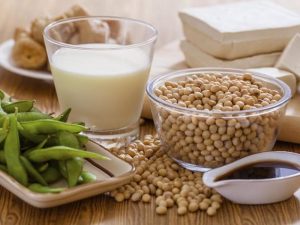
Soy is just a bean! Like any other bean, soy is rich in protein, and is an important part of the Far Eastern diet. The soybean originated in China but made its way to North America, solely for the purpose of animal feed, becoming a food crop later on. Soy is commonly consumed in the form of milk, yoghurt, tofu, sauce, miso, tamari, edamame, tempeh, cream and even soy butter.
So what’s wrong with soy? Nothing really, except the fact that since 1995, about 90% of soy has been genetically modified. That is the real issue. Genetically modified (GM) foods are not natural and cause a huge strain to the environment. Besides soy, many other food crops are also GM. These include maize, sugar beets and canola. If one is consuming organically grown soy, there is no harm in consuming soy. Remember, most of the soy is fed to animals in our food chain, so eating meat and dairy products, may be a way of eating high quantities of GM soy!
|
1. Does soy have too much protein?
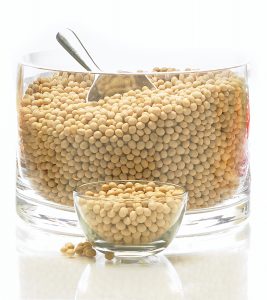
Soybeans contain upto 48% protein, which is equivalent to milk, beef and egg proteins. Excess protein leads to health issues like kidney stone, gout etc, so its best not to replace everything with soy.
|
|
2. What are the health benefits of consuming soy?
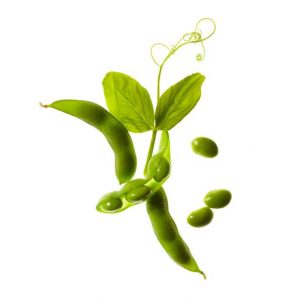
Soybeans contain a mix of slow-digesting carbs, including fibre and other starches, which are good for growth of healthy bacteria in the gut. Soy also contains phytoestrogens, omega-3 fatty acids and a variety of nutrients.
|
|
3. Why is soy-milk better than cow’s milk?
Cow’s milk contains cholesterol, whereas soy milk is cholesterol-free and contains fibre. In fact soy helps to reduce cholesterol. Soy milk also contains numerous protective phytochemicals that cow’s milk doesn’t have. Also cow’s milk has nine times more saturated fats! In fact any plant based milk is healthier than cow’s milk.
|
4. What is the best way to consume soy?
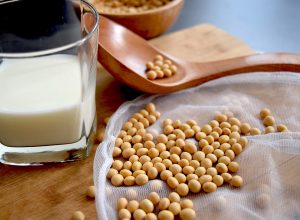
Make soya milk at home with organically produced soy! Store brought soy milk, tofu etc may come with its share of harmful preservatives, chemicals, added fats, sugar and flavourings. Avoid packaged foods contain soy by-products like soy-lecithin, soy isolates, soy oil etc..
|
|
5. Does soy contain estrogen?
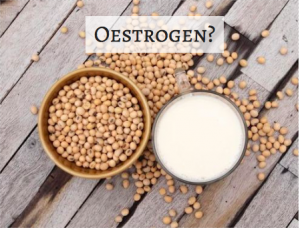
No soy has zero estrogen and in fact cow’s milk has estrogen! ‘Phytoestrogens’ are not really estrogens
|
|
6. Does soy affect fertility?
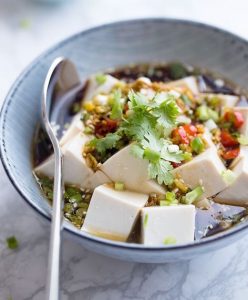
Soy is grown and is a staple food in China, the world’s most populated country! Non GM soy does not affect fertility.
|
|
8. How does soy affect the
environment?
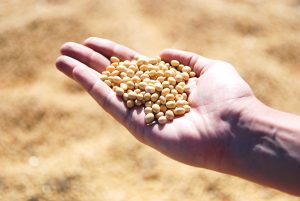
Soy production for animal feed has led to huge amount of deforestation, which then fuels greenhouse gases.
|
|
8. Do you need to eat soy on a plant based diet?
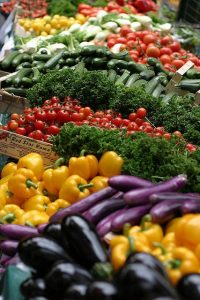
Not at all! There are so many other delicious foods that soy can be completely avoided and is not at all a necessity for proteins or anything else.
|
|
|